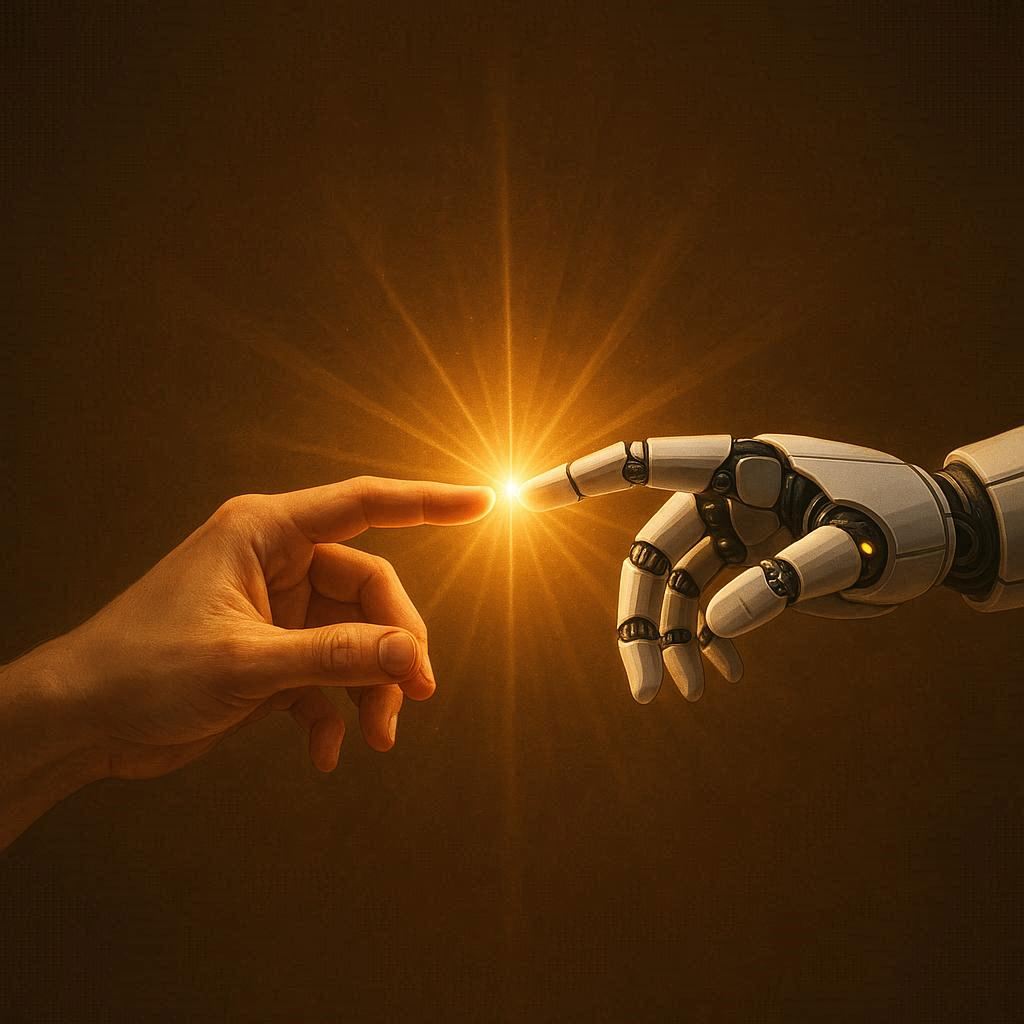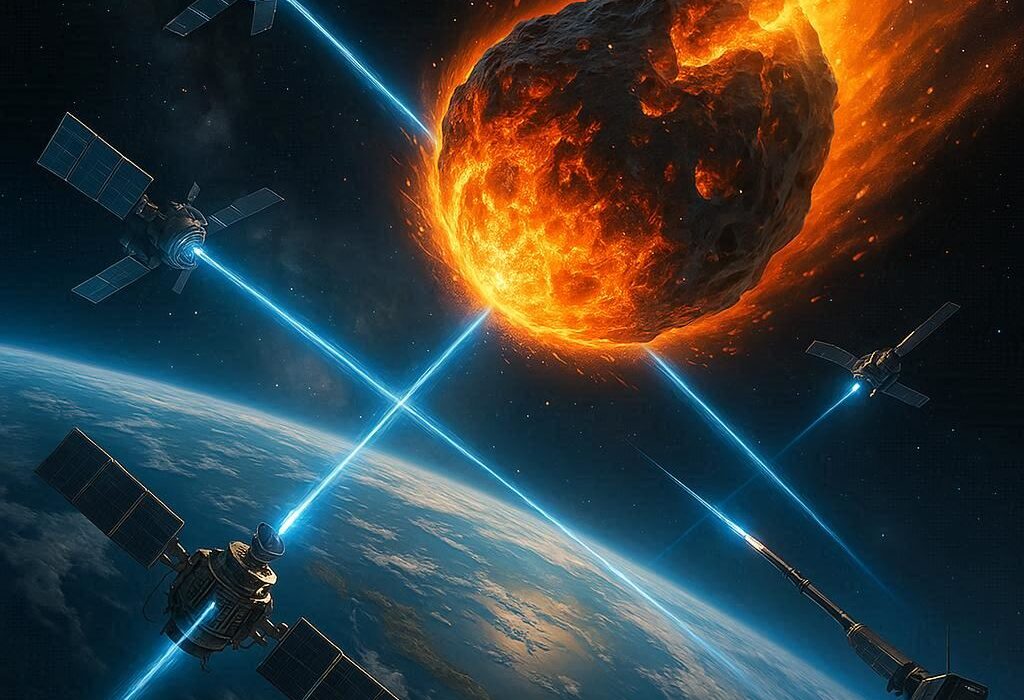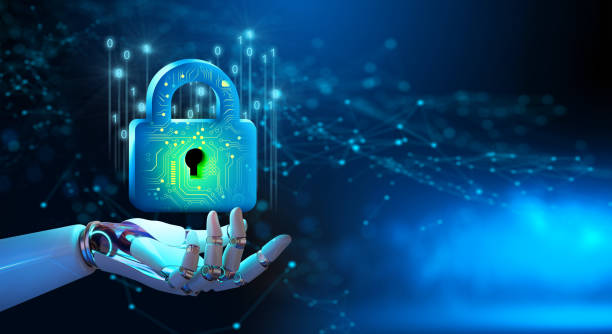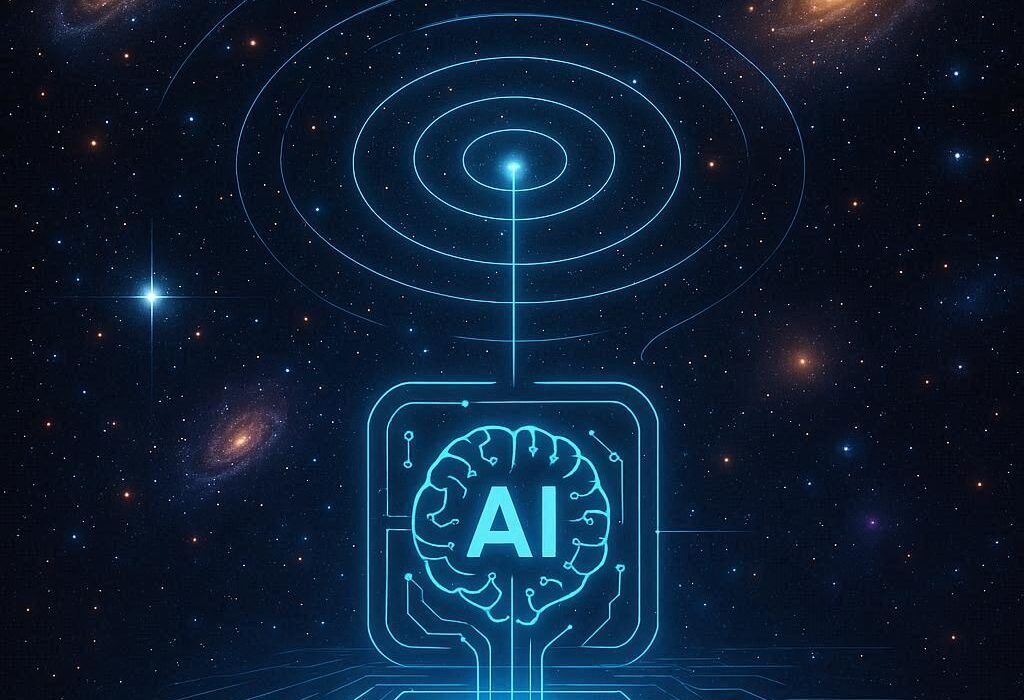Every great shift in human history has forced us to confront fundamental questions about who we are and what we stand for. The agricultural revolution made us settle into communities, rewriting our relationship with land and labor. The industrial revolution transformed economies and societies, reshaping our notions of progress and power. Now we are living through another turning point—one driven not by steam or steel, but by algorithms, data, and machines that learn.
Artificial intelligence, automation, and digital technologies are rewriting the script of civilization. Machines no longer simply obey; they adapt, predict, and, in some cases, create. They sort résumés, diagnose diseases, recommend what we watch, and steer vehicles through busy streets. Soon they may design drugs, manage infrastructures, and negotiate contracts.
This transformation is not merely technological—it is profoundly ethical. As machines become embedded in our lives, they begin to shape the choices we make, the opportunities we have, and even the way we see ourselves. The question is not only what machines can do, but what they should do, and how we ensure that the values embedded in them reflect the humanity we wish to preserve.
The Rise of Intelligent Machines
To understand the challenges before us, we must first grasp the nature of the technologies transforming our world. Artificial intelligence is not a single invention but a collection of tools and methods designed to mimic or augment human intelligence. From neural networks that recognize faces in photos to natural language systems that can converse in human-like prose, AI is advancing at a pace that outstrips traditional models of regulation and adaptation.
Unlike earlier technologies, AI has a remarkable duality. It is both a tool and a partner. A hammer amplifies strength but requires human direction; an AI system, by contrast, can generate its own strategies and solutions once given an objective. This autonomy is what makes AI so powerful—and so unsettling. It forces us to ask: what happens when a machine’s logic does not align with human values?
Values at the Heart of Progress
Human societies are built upon values—principles like fairness, dignity, freedom, justice, and compassion. These values are not always universally agreed upon, nor are they consistently upheld, but they serve as anchors for our collective lives. As machines take on roles once reserved for human judgment, they must somehow be guided by these same values.
Consider healthcare. An AI diagnosing cancer can save lives, but if the system is trained primarily on data from one demographic group, its accuracy may falter for others, amplifying inequity rather than reducing it. Or think of criminal justice: predictive policing algorithms may claim to be neutral, yet if fed biased historical data, they can perpetuate cycles of discrimination. The challenge is clear—embedding human values into machine systems is not optional. It is essential for a just and livable future.
The Ethical Tension of Efficiency and Humanity
One of the defining features of machines is their capacity for efficiency. They optimize, streamline, and maximize. Humans, however, are not creatures of pure efficiency. We value patience, empathy, and sometimes even the beauty of imperfection. A hand-carved piece of furniture, a slow-cooked meal, or a meandering conversation holds meaning precisely because it resists optimization.
This tension between efficiency and humanity lies at the heart of our future with machines. Should a hiring algorithm prioritize speed in selecting candidates, or should it account for the messy, qualitative dimensions of human potential? Should autonomous vehicles minimize fatalities in every scenario, even if that requires cold calculations about whose lives to prioritize? These are not just technical questions—they are moral ones. And they force us to ask whether a world designed by machines will leave room for what makes us human.
The Risk of Losing Our Reflection
Perhaps the greatest danger of a machine world is not that we will be controlled by robots, but that we will design systems that reflect only the narrowest slice of ourselves. Machines learn from the data we provide, and that data is a mirror of our past. If we feed AI a history of inequities, biases, and short-term profit-driven choices, then the future it constructs will echo those same flaws.
This is not a distant concern. Already, social media algorithms amplify outrage because it generates clicks, polarizing societies in pursuit of engagement metrics. Recommendation systems can trap us in echo chambers that reinforce biases. Credit-scoring algorithms can entrench systemic discrimination, punishing individuals not for their choices but for the patterns of their communities.
When machines reflect our worst impulses instead of our highest aspirations, we risk building a future that diminishes us rather than uplifts us. Designing the future we want means curating the values we encode—not passively inheriting them from flawed data but actively shaping them with foresight and responsibility.
Human Flourishing as the True North
If the purpose of technology is to serve humanity, then human flourishing must be the compass that guides its development. Flourishing is more than survival or material prosperity; it is about living lives of meaning, connection, and dignity. Machines should not merely make us faster or wealthier—they should expand our capacity to be fully human.
In education, this could mean AI systems that personalize learning not to produce standardized workers but to unlock individual creativity and potential. In healthcare, it could mean technologies that augment human care rather than replace the warmth of human touch. In governance, it could mean algorithms that enhance transparency and participation, empowering citizens rather than concentrating power.
Flourishing cannot be reduced to a data point. It demands a holistic view of what makes life worth living. This is where human values must remain central. Machines can calculate probabilities, but only humans can decide what kind of world we want those probabilities to serve.
Responsibility in Design
The responsibility for aligning machines with human values lies not only with engineers but with all of us. Technologists, policymakers, educators, ethicists, and ordinary citizens must all play a role in shaping the trajectory of innovation. Every line of code, every dataset, every policy decision carries an ethical weight.
This responsibility requires transparency. If an algorithm determines whether someone receives a loan, they deserve to know why. If a machine learning system denies medical treatment, its reasoning must be explainable. Opaque decision-making erodes trust and undermines justice. Designing for transparency means designing systems that can be scrutinized, challenged, and corrected.
It also requires diversity. A machine world designed by a narrow group of people will reflect their assumptions and blind spots. Ensuring that those building our technological future represent varied cultures, genders, and perspectives is not just a matter of fairness—it is a matter of survival. The broader the human input, the more resilient and inclusive the systems we create.
The Global Dimension
Technology knows no borders, yet values vary across cultures. One society may prize individual freedom, another collective harmony. One may prioritize privacy, another security. In a machine world, these differences cannot be ignored.
Global cooperation is essential to avoid a future where technological values are imposed by the most powerful, leaving others marginalized. Just as climate change requires a shared response, so too does the governance of AI and automation. International frameworks, ethical agreements, and cross-cultural dialogue will be necessary to ensure that machine intelligence serves humanity as a whole, not just a privileged fraction.
The Emotional Landscape of a Machine World
Beyond ethics and policy, there is a deeply personal dimension to our relationship with machines. As AI systems grow more sophisticated, they challenge our sense of uniqueness. When a machine writes a poem, paints an image, or composes music, we cannot help but ask: what, then, is creativity? When a chatbot listens and responds with empathy, we wonder: what, then, is connection?
These encounters evoke both wonder and unease. They force us to re-examine what it means to be human in a world where machines can imitate some of our most cherished qualities. But perhaps this re-examination is an opportunity. By defining more clearly what distinguishes human experience—our vulnerability, our mortality, our moral responsibility—we can anchor ourselves more firmly in a rapidly changing world.
Imagining Futures
The future is not predetermined. We stand at a crossroads, with multiple pathways before us. One leads to a world where machines amplify inequality, devalue human labor, and erode trust. Another leads to a future where machines free us from drudgery, extend our capacities, and help us build more compassionate societies.
Imagination is key. We must envision the kind of world we want, not simply react to what technology delivers. This means cultivating public conversations about values, ethics, and goals—conversations that include not only experts but also ordinary people whose lives will be most affected. The future we design must be a collective one.
A Call to Human Agency
In the end, machines will not decide the future. We will. Technology is a tool, and like all tools, its impact depends on how it is wielded. The printing press could spread propaganda or enlightenment. Electricity could power weapons or light cities. Artificial intelligence will be no different.
The question is whether we approach this moment with passivity or with agency. If we simply let markets, algorithms, and short-term incentives drive innovation, we may wake up to a machine world that reflects neither our values nor our hopes. But if we approach it with intention, with courage, and with compassion, we can design a future that deepens our humanity rather than diminishes it.
Conclusion: The Future We Want
As machines grow more intelligent, the burden of wisdom falls more heavily on us. To live in a machine world is not to surrender to inevitability—it is to choose what kind of civilization we want to create. Will it be one of cold efficiency or one of human flourishing? Of entrenched inequality or expanded dignity? Of fragmented distrust or shared purpose?
The answer depends on the values we uphold and the courage with which we defend them. The future is not written in algorithms. It is written in the choices of a species that dares to look ahead, to imagine, and to design with intention.
In a machine world, the most important thing we can remember is this: machines may think, but only humans can care. And it is care—rooted in values—that will determine the kind of world we leave behind.






